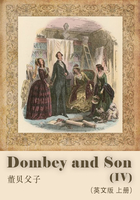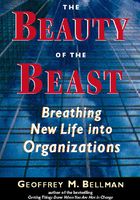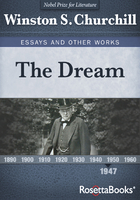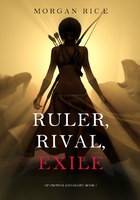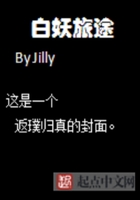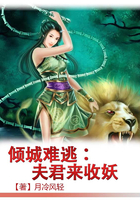The snow began to fall at a late hour and continued till dawn. I spent the night reading Shekure's letter again and again. I paced in the empty room of the empty house, occasionally leaning toward the candlestick; in the flickering light of the dim candle, I watched the tense quivering of my beloved's angry letters, the somersaults they turned trying to deceive me and their hip-swinging right-to-left progression. Abruptly, those shutters would open before my eyes, and my beloved's face and her sorrowful smile would appear. And when I saw her real face, I forgot all of those other faces whose sour-cherry mouths had increasingly matured and ripened in my imagination.
In the middle of the night I lost myself in dreams of marriage: I had no doubts about my love or that it was reciprocated—we were married in a state of great contentment—but, my imaginary happiness, set in a house with a staircase, was dashed when I couldn't find appropriate work and began arguing with my wife, unable to make her heed my words.
I knew I appropriated these ominous images from the section on the ills of marriage in Gazzali's The Revival of Religious Science, which I'd read during my nights as a bachelor in Arabia; at the same time, I recalled that there was actually advice on the benefits of marriage in that same section, though now I could remember only two of these benefits: first, having my household kept in order (there was no such order in my imagined house); second, being spared the guilt of self-abuse and of dragging myself—an even deeper sense of guilt—behind pimps leading me through dark alleyways to the lairs of prostitutes.
The thought of salvation at this late hour brought masturbation to mind. With a simple-minded desire, and to rid my mind of this irrepressible urge, I retired to a corner of the room, as was my wont, but after a while I realized I couldn't jack off—proof well enough that I'd fallen in love again after twelve years!
This struck such excitement and fear into my heart that I walked around the room nearly atremble like the flame of the candle. If Shekure meant to present herself at the window, then why this letter, which put the opposite belief into play? Why did her father call for me? As I paced, I sensed that the door, wall and squeaky floor, stuttering as I myself did, were trying to creak their responses to my every question.
I looked at the picture I'd made years ago, which depicted Shirin stricken with love upon gazing at Hüsrev's image hanging from a branch. It didn't embarrass me as it would each time it came to mind in subsequent years, nor did it bring back my happy childhood memories. Toward morning, my mind had mastered the situation: By returning the picture, Shekure had made a move in an amatory chess game she was masterfully luring me into. I sat in the candlelight and wrote her a letter of response.
In the morning, after sleeping for a spell, I went out and walked a long way through the streets, carrying the letter upon my breast and my light pen-and-ink holder, as was my custom, in my sash. The snow widened Istanbul's narrow streets and freed the city of its crowds. All was quieter and slower, as it'd been in my childhood. Crows seemed to have beset Istanbul's roofs, domes and gardens just as they had on the snowy winter days of my youth. I walked swiftly, listening to my steps in the snow and watching the fog of my breath. I grew excited, expecting the palace workshop that my Enishte wanted me to visit to be as silent as the streets. Before I entered the Jewish quarter, I sent word by way of a little street urchin to Esther, who'd be able to deliver my letter to Shekure, telling her where to meet me before the noontime prayers.
I arrived early at the royal artisans' workshop located behind the Hagia Sophia. Except for the icicles hanging from the eaves, there was no change in the building where I'd often visited my Enishte and for a time worked as a child apprentice.
Following a handsome young apprentice, I walked past elderly master binders dazed from the smell of glue and bookbinder's paste, master miniaturists whose backs had hunched at an early age and youths who mixed paints without even looking into the bowls perched on their knees, so sorrowfully were they absorbed by the flames of the stove. In a corner, I saw an old man meticulously painting an ostrich egg on his lap, another elder enthusiastically embellishing a drawer and a young apprentice graciously watching them both. Through an open door, I witnessed young students being reprimanded as they leaned forward, their noses almost touching the pages spread before their reddened faces, as they tried to understand the mistakes they'd made. In another room, a mournful and melancholy apprentice, having forgotten momentarily about colors, papers and painting, stared into the street I'd just now eagerly walked down.
We climbed the icy staircase. We walked through the portico, which wrapped around the inner second floor of the building. Below, in the inner courtyard covered with snow, two young students, obviously trembling from the cold despite their thick capes of coarse wool, were waiting—perhaps for an imminent beating. I recalled my early youth and the beatings given to students who were lazy or who wasted expensive paints, and the blows of the bastinado, which landed on the soles of their feet until they bled.
We entered a warm room. I saw two novices who'd recently finished their apprenticeships. Since the great masters, whom Master Osman had given workshop names, now worked at home, this room, which once aroused excessive reverence and delight in me, no longer seemed like the workshop of a great and wealthy sultan but merely a largish room in some secluded caravansary in the remote mountains of the East.
Immediately off to the side, before a long counter, I saw the Head Illuminator, Master Osman, for the first time in fifteen years; he seemed like an apparition. Whenever I contemplated illustrating and painting during my travels, the great master would appear in my mind's eye as if he were Bihzad himself; now, in his white outfit and in the snow-white light falling through the window facing the Hagia Sophia, he looked as though he'd long become one of the spirits of the Otherworld. I kissed his hand, which I noticed was mottled, and I introduced myself. I explained how my Enishte had enrolled me here as a youth, but that I'd preferred a bureaucratic post and left. I recounted my years on the road, my time spent in Eastern cities in the service of pashas as a clerk or treasurer's secretary. I told him how, working with Serhat Pasha and others, I met calligraphers and illuminators in Tabriz and produced books; how I spent time in Baghdad and Aleppo, in Van and Tiflis, and how I'd seen many battles.
"Ah, Tiflis!" the great master said, as he gazed at the light from the snow-covered garden filtering through the oilskin covering the window. "Is it snowing there now?"
His demeanor befitted those old Persian masters who grew blind perfecting their artistry; who, after a certain age, lived half-saintly, half-senile lives, and about whom endless legends were told. I straightaway saw in his jinnlike eyes that he despised my Enishte vehemently and that he was furthermore suspicious of me. Even so, I explained how in the Arabian deserts snow didn't simply fall to the Earth, as it was now falling onto the Hagia Sophia, but onto memories as well. I spun a yarn: When it snowed on the fortress of Tiflis, the washerwomen sang songs the color of flowers and children hid ice cream under their pillows for summer.
"Do tell me what those illuminators and painters illustrate in the countries you've visited," he said. "What do they depict?"
A dreamy-eyed young painter who was ruling out pages in the corner, lost in revery, raised his head from his folding work desk along with the others in the room and gave me a look that said, "Let this be your most honest answer." Many of these craftsmen didn't know the corner grocer in their own neighborhood, or how much an oke's worth of bread cost, but they were very curious about the latest gossip East of Persia, where armies clashed, princes strangled one another and plundered cities before burning them to the ground, where war and peace were contested each day, where the best verses were written and the best illustrations and paintings were made for centuries.
"Shah Tahmasp reigned for fifty-two years. In the last years of his life, as you know, he abandoned his love of books, illustrating and painting, turned his back on poets, illustrators and calligraphers, and resigning himself to worship, passed away, whereupon his son, Ismail, ascended to the throne," I said. "Shah Tahmasp had been well aware of his son's disagreeable and antagonistic nature, so he kept him, the shah-to-be, behind locked doors for twenty years. As soon as Ismail assumed the throne, in a mad frenzy, he had his younger brothers strangled—some of whom he'd blinded beforehand. In the end, however, Ismail's enemies succeeded in plying him with opium and poisoning him, and after being liberated from his worldly presence, they placed his half-witted older brother Muhammad Khodabandeh on the throne. During his reign, all the princes, brothers, provincial governors and Uzbeks, in short everyone, started to revolt. They went after each other and our Serhat Pasha with such martial ferocity that all of Persia turned to smoke and dust and was left in disarray. Indeed, the present shah, bereft of money and intelligence and half-blind, is not fit to sponsor the writing and illustration of illuminated manuscripts. Thus, these legendary illustrators of Kazvin and Herat, all these elderly masters, along with their apprentices, these artisans who made masterpieces in Shah Tahmasp's workshops, painters and colorists whose brushes made horses gallop at full speed and whose butterflies fluttered off the page, all of these master binders and calligraphers, every last one was left without work, penniless and destitute, homeless and bereft. Some migrated to the North among the Uzbeks, some West to India. Others took up different types of work, wasting themselves and their honor, and still others entered the service of insignificant princes and provincial governors, all sworn enemies of each other, to begin working on palm-size books containing at most a few leaves of illustration. Rapidly transcribed, hastily painted, cheap books appeared everywhere, matching the tastes of common soldiers, boorish pashas and spoiled princes."
"How much would they go for?" asked Master Osman.
"I hear that the great Sadiki Bey illustrated a copy of Strange Creatures, commissioned by an Uzbek spahi cavalryman, for only forty gold pieces. In the tent of a vulgar pasha who was returning from his Eastern campaign to Erzurum, I beheld an album consisting of lewd pictures including paintings by the virtuoso Siyavush. A few great masters who hadn't abandoned illustrating were making and selling individual pieces, which weren't part of any story at all. By examining such single leaves, you couldn't tell which scene or which story it represented; rather, you would admire it for its own sake, for the pleasure of beholding alone. For example, you might comment, 'This is the exact likeness of a horse, how beautiful,' and you'd pay the artist on this basis. Scenes of combat or fucking are quite common. The price for a bustling battle has fallen to three hundred silver coins, and there are hardly any interested clients. To sell pieces on the cheap and to better lure a buyer, some simply draw in black ink on nonsized, unfinished paper with nary a brushstroke of color."
"There was a gilder of mine who was content as content could be and talented as talent would allow," said Master Osman. "He saw to his work with such elegance that we referred to him as 'Elegant Effendi.' But he has abandoned us. It's been six days, and he's not to be found anywhere. He's plain disappeared."
"How could anyone quit such a workshop as this, such a joyous hearth?" I said.
"Butterfly, Olive, Stork and Elegant, the four young masters whom I've trained since they were apprentices, now work at home at Our Sultan's behest," said Master Osman.
This apparently came about so they could work more comfortably on the Book of Festivities with which the entire workshop was involved. This time, the Sultan hadn't arranged for a special workspace for His master miniaturists in the palace courtyard; rather, He decreed that they work on this special book at home. When it occurred to me that this order was probably issued for the sake of my Enishte's book, I fell silent. To what degree was Master Osman making insinuations?
"Nuri Effendi," he called to a pale and hunched painter, "present Our Master Black with a 'survey' of the workshop!"
The "survey" was a regular ritual of Our Sultan's bimonthly visits to the miniaturists' atelier during that exciting time when His Excellency had intently followed what transpired at the workshop. Under the auspices of Haz?m, the Head Treasurer; Lokman, the Head Poetic Chronicler and Master Osman, the Head Illuminator, Our Sultan would be apprised of which pages in which books the masters were working on at any given moment: who did which gilding, who colored which picture, and one by one, how the colorists, the page rulers, the gilders and the master miniaturists, whose talent allowed them to accomplish miracles, were engaged. It saddened me that they were holding a fake ceremony in place of the one that was no longer performed because age and ill health bound the Head Poetic Chronicler Lokman Effendi, who wrote most of the books which were illustrated, to his home; because Master Osman often disappeared in a cloud of indignation and wrath; because the four masters known as Butterfly, Olive, Stork and Elegant worked at home; and because Our Sultan no longer waxed enthusiastic like a child in the workshop. As happened to many miniaturists, Nuri Effendi had grown old in vain, without having fully experienced life or become a master of his art. Not in vain, however, did he spend those years over his worktable becoming hunchbacked: He always paid close attention to what happened in the workshop, to who made which exquisite page.
And so I eagerly beheld for the first time the legendary pages of the Book of Festivities, which recounted the circumcision ceremonies of Our Sultan's prince. When I was still in Persia, I heard stories about this fifty-two-day circumcision ceremony wherein people from all occupations and all guilds, all of Istanbul, had participated, indeed at a time when the book that memorialized the great event was yet being prepared.
In the first picture placed before me, fixed in the royal enclosure of late Ibrahim Pasha's palace, Our Sultan, the Refuge of the World, gazed upon the festivities in the Hippodrome below with a look that bespoke His satisfaction. His face, even though not so detailed as to permit one to distinguish Him from others by features alone, was drawn adeptly and with reverence. As for the right side of the double-leaf picture showing Our Sultan on the left, there were viziers, pashas, Persian, Tatar, Frankish and Venetian ambassadors standing in the arched colonnades and windows. Because they were not sultans, their eyes were drawn hastily and carelessly and focused on nothing in particular besides the general commotion in the square. Later, I noticed in other pictures that the same arrangement and page composition repeated—even though the wall ornamentation, the trees and terracotta shingles were depicted in different styles and colors. Once the text was written out by scribes, the illustrations completed and the book bound, the reader, turning pages, would each time see completely different activities in completely different colors in the Hippodrome which remained under the same watchful gazes of the Sultan and His crowd of guests—who always stood identically, forever gazing at the same area below.
There before me I saw people scrambling for hundreds of bowls of pilaf that were placed in the Hippodrome; I saw the live rabbits and birds emerge out of the roast ox and startle the crowd that descended upon it. I saw the master coppersmiths' guild riding in a wheeled cart before Our Sultan, its members hammering away at copper but never striking the one among them lying in the cart with the anvil balanced on his bare chest. I saw glaziers embellishing glass with carnations and cypresses as they paraded before Our Sultan in a wagon; confectioners reciting sweet poems as they drove camels laden with sacks of sugar and displayed cages holding sugar-parrots; and aged locksmiths who showed off a variety of hanging locks, padlocks, dead bolts and gearlocks as they complained of the evils of new times and new doors. Butterfly, Stork and Olive had worked on the picture that depicted the magicians: One of them was causing eggs to march down a pole without dropping them—as if on a broad slab of marble—to the beat of a tambourine played by another. In one wagon I saw precisely how Sea-Captain K?l?? Ali Pasha had forced the infidels he'd captured at sea to make an "infidels' mountain" out of clay; he'd then loaded all the slaves into the cart, and when he was right before the Sultan, he exploded the powder within the "mountain" to demonstrate how he'd made infidel lands wail and moan with cannon fire. I saw clean-shaven butchers wielding cleavers, wearing rose- and purple-colored uniforms and smiling at the pink carcasses of skinned sheep hanging from hooks. The spectators applauded lion tamers who'd brought a chained lion before Our Sultan, provoking and enraging it until its eyes shone blood-red with rage; and on the next page, I saw the lion, representing Islam, chase away a gray-and-pink pig, symbolizing the cunning Christian infidel. I indulged my eyes at length on a picture of a barber suspended upside down from the ceiling of a shop built onto a cart, as he shaved a customer while his assistant, dressed in red, held a mirror and a silver bowl containing fragrant soap, waiting for baksheesh; I inquired after the identity of the magnificent miniaturist responsible for the piece.
"It is indeed important that a painting, through its beauty, summon us toward life's abundance, toward compassion, toward respect for the colors of the realm which God created, and toward reflection and faith. The identity of the miniaturist is not important."
Was Nuri the Miniaturist, who was much more subtle in thought than I'd assumed, being reserved because he understood that my Enishte sent me here to investigate, or was he merely parroting Head Illuminator Master Osman?
"Is Elegant the one responsible for all this gilding work?" I asked. "Who's doing the gilding now, in his stead?"
The shouts and screams of children could now be heard through the open door that faced the inner courtyard. Below, one of the division heads had started administering the bastinado to apprentices who'd most likely been caught with red ink powder in their pockets or gold leaf hidden away in a fold of paper; probably the two whom I'd seen trembling as they waited in the cold. Young painters, seizing an opportunity to mock them, ran to the door to watch.
"By the time the apprentices paint the ground of the Hippodrome here a rose color, finishing it off as our Master Osman has dictated," said Nuri Effendi cautiously, "our brother Elegant Effendi, God willing, will have returned from wherever he's gone and will complete the gilding on these two pages. Our master, Osman the Miniaturist, wanted Elegant Effendi to color the dirt floor of the Hippodrome differently in each scene. Rose pink, Indian green, saffron yellow or the color of goose shit. Whosoever beholds the picture will realize in the first rendering this is a dirt square and should be earth-colored, but in the second and third pictures, he'll want other colors to keep himself amused. Embellishing ought to bring merriment to the page."
I noticed some pictures on a sheet of paper that an assistant left in a corner. He was working on a single-leaf picture for a Book of Victories, the depiction of a naval fleet heading off to battle, but it was obvious that the screams of his friends whose soles were being severely beaten, provoked the illustrator to run off and watch. The fleet he made by repeatedly tracing identical ships with a block pattern didn't even seem to float in the sea; yet, this artificiality, the lack of wind in the sails, had less to do with the block pattern than the young painter's lack of skill. I saw with sorrow that the pattern had been cut violently out of an old book which I couldn't identify, perhaps a collage album. Obviously, Master Osman was overlooking quite a lot.
When we came to his own worktable, Nuri Effendi proudly stated that he had finished a gilded royal insignia for Our Sultan, which he'd been working on for three weeks. I respectfully admired Nuri Effendi's gold inlay and the insignia, which had been made on an empty sheet to ensure that its recipient and the reason for its being sent would remain secret. I knew well enough that many impetuous pashas in the East had refrained from rebellion upon seeing the noble and potent splendor of the Sultan's royal insignia.
Next, we saw the last masterpieces that Jemal the Calligrapher had transcribed, completed and left behind; but we passed over them hastily to avoid giving credence to opponents of color and decoration who maintained that true art consisted of calligraphy alone and that decorative illumination was simply a secondary means of adding emphasis.
Nas?r the Limner was making a mess of a plate he intended to repair from a version of the Quintet of Nizami dating back to the era of Tamerlane's sons; the picture depicted Hüsrev looking at a naked Shirin as she bathed.
A ninety-two-year-old former master who was half blind and had nothing to say besides claiming that sixty years ago he kissed Master Bizhad's hand in Tabriz and that the great master of legend was blind and drunk at the time, showed us with trembling hands the ornamentation on the pen box he would present as a holiday gift to Our Sultan when it was completed three months hence.
Shortly a silence enveloped the whole workshop where close to eighty painters, students and apprentices worked in the small cells which constituted the lower floor. This was a postbeating silence, the likes of which I'd experienced many times; a silence which would be broken at times by a nerve-wracking chuckle or a witticism, at times by a few sobs or the suppressed moan of the beaten boy before his crying fit would remind the master miniaturists of the beatings they themselves received as apprentices. But the half-blind ninety-two-year-old master caused me to sense something deeper for a moment, here, far from all the battles and turmoil: the feeling that everything was coming to an end. Immediately before the end of the world, there would also be such silence.
Painting is the silence of thought and the music of sight.
As I kissed Master Osman's hand to bid him farewell, I felt not only great respect toward him, but a sentiment that plunged my soul into turmoil: pity mixed with the adoration befitting a saint, a peculiar feeling of guilt. This, perhaps, because my Enishte—who wanted painters, openly or secretly, to imitate the methods of the Frankish masters—was his rival.
I suddenly sensed, as well, that I was perhaps seeing the great master alive for the last time, and in the fluster of wanting to please and hearten him, I asked a question:
"My great master, my dear sir, what separates the genuine miniaturist from the ordinary?" I assumed the Head Illuminator, who was accustomed to such fawning questions, would give me a dismissive response, and that he was presently in the midst of forgetting who I was altogether.
"There is no single measure that can distinguish the great miniaturist from the unskilled and faithless one," he said in all seriousness. "This changes with time. Yet the skills and morality with which he would face the evils that threaten our art are of significance. Today, in order to determine just how genuine a young painter is, I'd ask him three questions."
"And what would they be?"
"Has he come to believe, under the sway of recent custom as well as the influence of the Chinese and the European Franks, that he ought to have an individual painting technique, his own style? As an illustrator, does he want to have a manner, an aspect distinct from others, and does he attempt to prove this by signing his name somewhere in his work like the Frankish masters? To determine precisely these things, I'd first ask him a question about 'style' and 'signature.'"
"And then?" I asked respectfully.
"Then, I'd want to learn how this illustrator felt about volumes changing hands, being unbound, and our pictures being used in other books and in other eras after the shahs and sultans who'd commissioned them have died. This is a subtle issue demanding a response beyond one's being simply upset or pleased by it. Thus, I'd ask the illustrator a question about 'time'—an illustrator's time and Allah's time. Do you follow me, my child?"
Nay. But that's not what I said. Instead, I asked, "And the third question?"
"The third would be 'blindness'!" said the great master Head Illuminator Osman, who then fell silent as if this required no explication.
"What is it about 'blindness'?" I said with embarrassment.
"Blindness is silence. If you combine what I've just now said, the first and the second questions, 'blindness' will emerge. It's the farthest one can go in illustrating; it is seeing what appears out of Allah's own blackness."
I said no more. I walked outside. I descended the icy stairs without hurrying. I knew that I would ask the great master's three great questions of Butterfly, Olive and Stork, not only for the sake of conversation, but to better understand these living legends who were contemporaries of mine.
I did not, however, go to the master illuminators' houses immediately. I met with Esther near the Jewish quarter at a new bazaar that had an elevated view of the confluence of the Golden Horn and the Bosphorus. Esther was all atwitter in the pink dress she was forced to wear as a Jew, with her large and lively body, her mouth which never stopped moving, and her eyebrows and eyes which twitched madly and signaled to me; indeed, this is how she was among the shopping slave women, the women wearing the faded and loose caftans of poor neighborhoods and among the crowds that had lost themselves amid carrots, quinces and small bundles of onions and turnips.
She stuffed the letter I gave her into her shalwar pants with an adept and mysterious gesture, as if the whole market were spying upon us. She told me that Shekure was thinking of me. She took her baksheesh and when I said, "Please, make haste and deliver it straightaway," she indicated that she still had quite a lot of work to do by gesturing toward her bundle and said that she only could deliver the letter to Shekure toward midday. I asked her to tell Shekure that I'd gone to pay visits to the three young and renowned master miniaturists.

